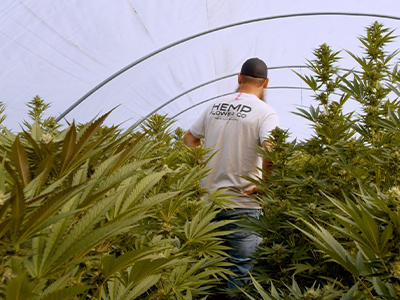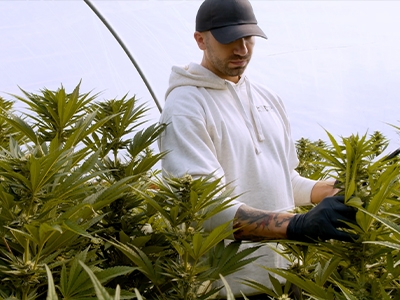Oregon has emerged as a national leader in hemp research and development, thanks to a growing network of universities, private laboratories, and cultivators working in tandem to create new indoor-friendly strains. By leveraging the state’s robust regulatory framework and diverse agricultural expertise, these collaborations aim to improve hemp quality, maximize yields, and meet increasing market demand for high-quality, consistent products.
Hemp Flower Co., a regenerative hemp farm located in Oregon’s Willamette Valley, is among the frontline cultivators partnering with academic institutions and industry experts to push the boundaries of hemp genetics. According to Michal P., Founder of Hemp Flower Co., these cooperative efforts are a game-changer for growers looking to adapt their methods for controlled environments.
“Indoor farming isn’t just about shielding crops from the elements,” Michal P. explains. “It’s about meticulously managing variables like temperature, humidity, and light cycles. When we pair that control with cutting-edge genetics developed through collaborative research, we can consistently produce hemp flower that meets rigorous quality and potency standards.”
University-Industry Synergy
Local universities—such as Oregon State University and other regional institutions—have established dedicated research programs focused on hemp breeding, pest management, and soil sciences. These initiatives often receive support from private labs that offer advanced genetic screening and data analytics. By pooling resources, researchers can identify the traits most conducive to indoor success, such as heightened disease resistance and stable cannabinoid levels.
“We collaborate with plant geneticists who specialize in high-altitude agronomy, even though we’re growing indoors,” Michal P. says. “Insights gleaned from these environments help us develop strains that thrive under lower oxygen levels or cooler conditions—key factors when experimenting with novel indoor setups.”

Market Demand and Quality Control
As consumer interest in hemp-derived products continues to rise—ranging from smokable hemp flower to hemp extracts—industry stakeholders recognize the importance of delivering consistent, top-tier quality. Partnerships between farmers and academic labs ensure that each new strain undergoes thorough testing for potency compliance, as mandated by the Oregon Department of Agriculture (ODA) and federal guidelines under the 2018 Farm Bill.
“Consumers are increasingly knowledgeable and want transparency about what’s in their hemp products,” Michal P. notes. “Our partnership with local labs means we can track terpene profiles, minor cannabinoids, and contaminant levels with near-pinpoint accuracy, translating into the credible, high-grade products that the market demands.”
The Future of Hemp Innovation in Oregon
Moving forward, many in the industry predict that such cross-sector collaborations will only intensify. As technology evolves—think advanced greenhouse designs, automated irrigation, and AI-driven crop monitoring—Oregon’s hemp cultivators and research institutions are poised to keep the state on the cutting edge of hemp genetics. By fine-tuning strains for indoor environments, growers can meet rising domestic and international demand while maintaining Oregon’s longstanding reputation for agricultural excellence.
For more information on Oregon’s hemp regulations, visit the Oregon Department of Agriculture website or contact your local ODA representative. Additional interviews, farm tours, and product samples are available upon request.
Disclaimer: All hemp products referenced above are cultivated, processed, and distributed in accordance with the 2018 U.S. Farm Bill, which requires that any hemp-derived product contain no more than 0.3% Delta-9 on a dry-weight basis. At the same time, these products are federally legal.
Media Contact
Company Name: Rise Marketing
Contact Person: Media Relations
Email: Send Email
Phone: 9712639988
Country: United States
Website: https://hemp-flower.com/collections/thca-flower






